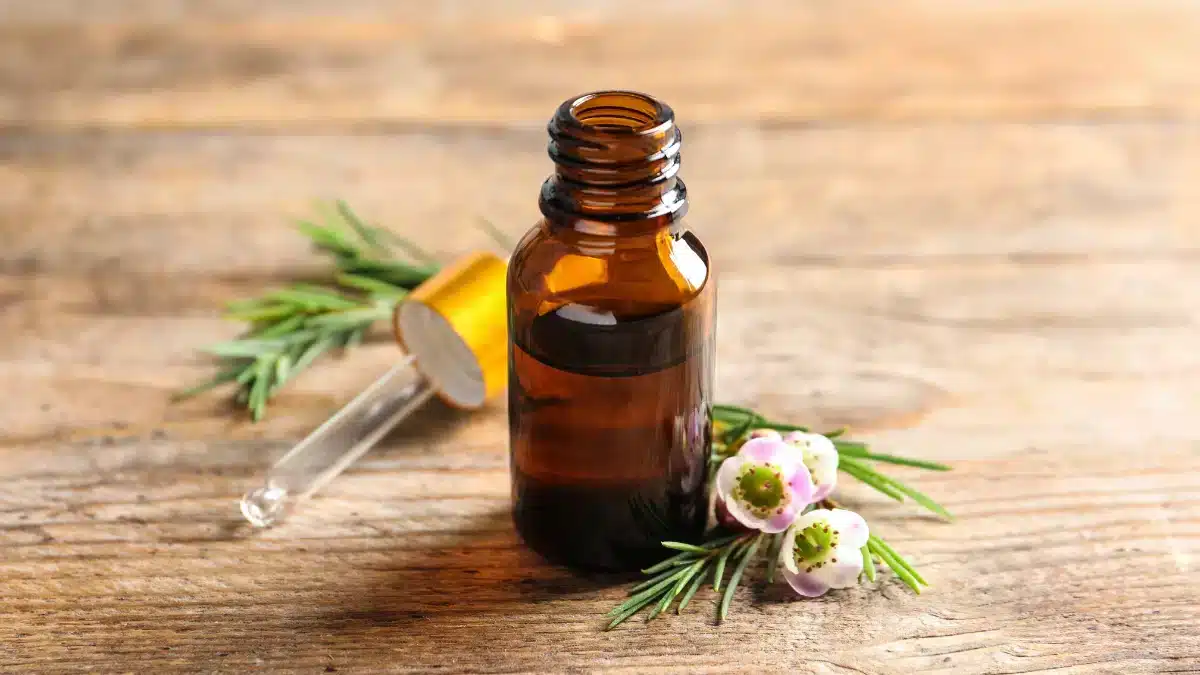Tea Tree Oil for Dry Scalp: A Natural Remedy
Dealing with an itchy and dry scalp can be a frustrating and uncomfortable experience.
A dry scalp can occur for various reasons, such as cold weather, excessive heat styling, chemical-laden hair products, or a lack of moisture.
While numerous over-the-counter products are available to address this issue, many individuals are turning to natural remedies.
And one such remedy gaining popularity is Tea Tree Oil (TTO).
The oil is produced from the leaves of the Melaleuca Alternifolia plant, commonly known as the tea tree.
It has numerous benefits for a dry scalp and has been known to be used in traditional medicine for generations.
Let’s delve into the world of TTO and its effectiveness against dry scalp.
Properties of Tea Tree Oil
There are several properties of TTO that are good for the scalp as well as the skin, including.
Moisturization and hydration
One of the primary reasons Tea Tree Oil is hailed as a solution for dry scalp is its moisturizing and hydrating properties.
When applied topically, TTO can penetrate the skin and provide deep hydration, reducing dryness and itchiness.
Additionally, it ensures that not too much sebum accumulates on the scalp and prevents excessive dryness without making the scalp too oily.
Antibacterial and antifungal effects

A dry scalp is often accompanied by itchiness and flakiness, which can be caused by an overgrowth of bacteria or fungi on the scalp.
Tea Tree Oil possesses antifungal and antibacterial properties, making it effective in combating these issues.
It can help eliminate the microorganisms responsible for scalp infections and dandruff, relieving the associated symptoms.
Regular use of TTO on the scalp can promote a healthier scalp environment, reducing dryness and improving overall scalp health.
Anti-inflammatory benefits
Tea Tree Oil also exhibits anti-inflammatory properties, which can be beneficial for individuals with dry scalps.
It can help ease and soothe irritated skin, reducing redness and inflammation.
TTO can relieve the itching and discomfort often experienced with dry scalp conditions by alleviating inflammation.
Tips for using Tea Tree Oil for dry scalp
To avoid skin irritation or allergic reactions, diluting Tea Tree Oil before applying it to your scalp is critical.
Here’s a simple recipe to create a TTO scalp treatment.
- Combine several of Tea Tree Oil with a tablespoon of carrier oil, like olive or coconut oil
- Mix the oils thoroughly to ensure proper mixing
- Part your hair and apply the mixture directly to the scalp using your fingertips
- Massage the oil gently onto your scalp for a few minutes to promote better absorption
- Leave it on for 15-20 minutes to allow the oil to penetrate the scalp
- Rinse your hair completely before washing it with a gentle shampoo and conditioner
To guarantee that there are no adverse reactions, a patch test on the skin is highly recommended before using the oil.
Things to consider

Though Tea Tree Oil can be beneficial for treating dry scalp, it is essential to exercise caution and use it responsibly.
Here are a few precautions and considerations to keep in mind.
Always use TTO in the diluted form before applying it to the scalp, as undiluted TTO can be too strong and may cause skin irritation.
But, before using it, visit a dermatologist or skin care professional if you have sensitive skin or a known allergy to it.
Takeaway
Tea Tree Oil is known for its efficacy against a dry scalp.
Its moisturizing, antibacterial, antifungal, and anti-inflammatory properties can alleviate dryness, itchiness, and flakiness.
You can incorporate tea tree oil in scalp massages or use products containing tea tree oil to avail its benefits.
However, diluting TTO properly and performing a patch test is crucial to avoid any adverse reactions.
Maintaining a healthy hair care routine, staying hydrated, and considering environmental factors can also contribute to long-term scalp health.
While Tea Tree Oil can be a valuable addition to your scalp care regimen, seeking professional advice is recommended if a dry scalp persists or worsens.
Frequently Asked Questions
How to treat a dry scalp with Tea Tree Oil?
To treat a dry scalp, blend TTO with a carrier oil such as coconut oil. Apply this solution to your scalp and let it rest for 15-20 minutes before washing your hair. This might aid in moisturizing and soothing the scalp.
Can Tea Tree Oil help with dry scalp?
Yes, Tea Tree Oil can help with a dry scalp. Its moisturizing properties can hydrate the scalp and reduce dryness and itchiness. Additionally, its antibacterial and antifungal effects can address any underlying scalp infections contributing to dryness.
Can I use Tea Tree Oil topically on my scalp?
Putting Tea Tree Oil directly on your scalp without dilution is not recommended. It is high in concentration and can cause skin irritation when used undiluted. Always mix the essential oil with a carrier oil like coconut oil before applying it to the scalp.
WowRx uses only high-quality sources while writing our articles. Please read our content information policy to know more about how we keep our content reliable and trustworthy.






